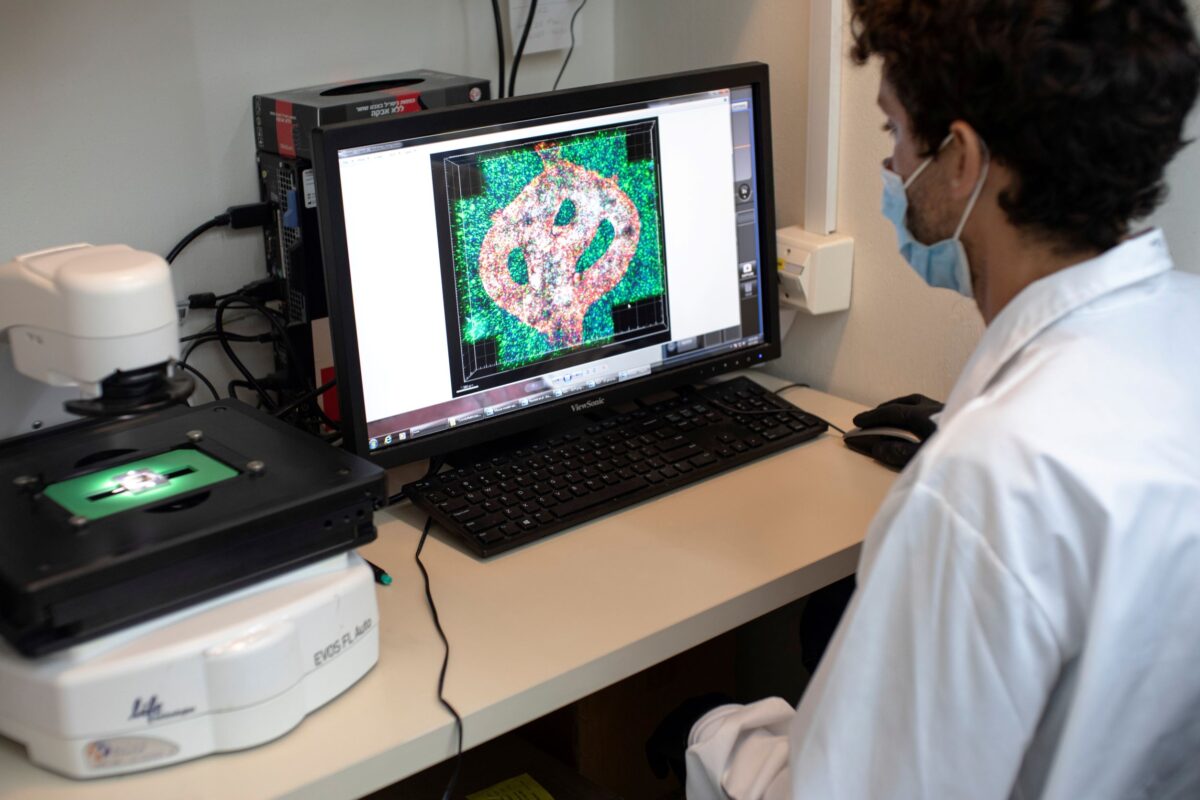
A new experimental drug therapy has shown some promising signs of slowing down the progression of a type of brain cancer by more than 16 months on average.
French drug developer Servier Labratories released results of a new medication that may become one of the earliest targeted therapies for a type of brain tumor affecting adults under the age of 50.
The development is one of the first major advances in a field that has made little progress for decades, giving hope to cancer patients and their families worldwide.
The new drug, Vorasidenib, staved off cancer growth over twice as long than in patients not taking the drug, with many needing little additional treatment, according to a study in the New England Journal of Medicine.
Patients in the drug trials had grade-2 gliomas, also known as low-grade glioma, which are slow-moving tumors that often hit people in their 30s or 40s and grow slowly and relentlessly.
Drugs Show Signs Of Success
The slow growing tumors were held off by a median of 27.7 months on average, according separate results released on June 4 by the American Society of Clinical Oncology in Chicago.
This is in comparison to 11.1 months for patients who received a placebo, extending the time for patients to receive additional treatment, such as chemotherapy or radiation.
The median time of cancer remission for patients taking the drug lasted over two years, and reduced the risk of cancer progression or death by 61 percent in the 331-person study, Servier said.
After two years, the likelihood of not requiring additional treatment was at around 83 percent for the 168 patients taking the drug, compared with 27 percent for the 163 patients on the placebo.
Patients from 77 health centers across 10 countries participated in the study.
The news about the 331 patients in the study were “a very big finding,” said Ingo Mellinghoff, chairman of the Neurology Department at Memorial Sloan Kettering Cancer Center in New York and one of the leaders of the trial.
This trial was the first late-stage study to target those mutations in brain cancer, he said, adding “it is the first molecularly targeted treatment for diffuse glioma.”
Vorasidenib is allegedly able to block an enzyme that often mutates in low-grade glioma, a slower-moving cousin to glioblastoma—the most aggressive form of brain cancer.
25,00o Diagnosed With Brain Cancer Each Year
Some 25,000 people in the United States are diagnosed with brain and spinal-cord cancers each year, according to the American Cancer Society, and about 4,000 patients a year are diagnosed with low-grade gliomas.
Chemotherapy and brain radiation is usually applied after standard surgery but many patients often postpone the treatments as long as possible, until the tumor starts to progress to a dangerous point.
The tumors are often incurable and normally come back years later.
More than 80 percent of grade-2 glioma patients have tumors caused by gene mutations called IDH that boost tumor growth.
Vorasidenib targets and blocks the IDH-mutated proteins by crossing the blood-brain barrier, said Dr. Susan Pandya, Servier’s vice-president of Clinical Development.
“It’s a very difficult disease without much success,” Dr. Patrick Wen, director of the Center for Neurooncology at Dana-Farber Cancer Institute in Boston and a senior author of the study, told The Wall Street Journal.
“Seeing these patients do well on the trial has been really gratifying.”
By pushing off tumor growth, the drug also lengthened the time when the often young patients could possibly wait before starting treatment, the study showed.
The drug could help delay cognitive decline, memory loss, and other side effects that can accompany chemotherapy and radiation.
“This is going to be a practice-changing study,” Dr. Eric Winer told The Wall Street Journal, director of the Yale Cancer Center and president of the American Society of Clinical Oncology, who did not participate in the study.
Seeks FDA Approval
Servier Group acquired Vorasidenib after it bought the cancer drug portfolio of Agios Pharmaceuticals in 2020 for $1.8 billion.
The pill, which can be taken once a day, may offer a relatively safe alternative for patients who have the choice of taking harsher treatments like brain radiation.
However, more studies need to be done to assess whether the drug may extend patient survival times.
The researchers said that patients tolerated the drug well. The most common side effect in the trial were elevated levels of liver enzymes, according to the data.
A separate trial is using Vorasidenib alongside immunotherapy and researchers are planning more trials combining the drug with radiation and chemotherapy.
Servier is studying the drug in more advanced cases of glioma that have progressed or recurred, in combination with Merck & Co.’s immunotherapy drug Keytruda, reported Bloomberg.
David Lee, who heads Servier’s operations in America, told Bloomberg that the French drug company is working toward filing for Food and Drug Administration approval as soon as the second half of 2024.
For now, Servier is reviewing follow-up data from the trial and recruiting manufacturing partners, Lee said.
The pharmaceutical firm first announced the success of the trials in March but did not release the details of the study until last week.


















































